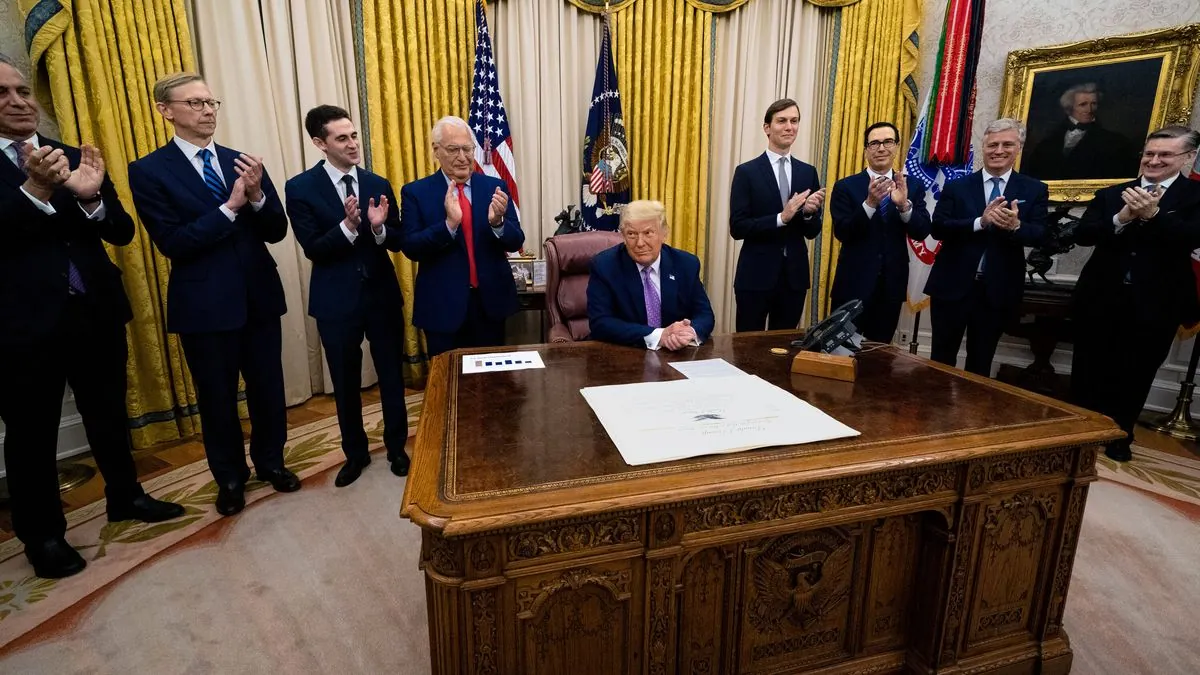In a significant diplomatic effort, a coalition of nations, including the United States, France, and three Arab countries, has put forward a proposal for a 21-day cease-fire between Israel and Hezbollah. This initiative aims to prevent the escalation of conflict in Lebanon, a country with a complex history of internal strife and external interventions.
Hezbollah, founded in 1982, has been a major player in Lebanese politics and regional conflicts. The group, designated as a foreign terrorist organization by the United States since 1997, has an estimated 25,000 active fighters in its military wing. The proposed cease-fire seeks to address the ongoing tensions between Hezbollah and Israel, which have a long history of confrontation, including the 2006 Lebanon War.
The Biden administration has expressed optimism about the proposal's acceptance. Officials anticipate that both the Israeli and Lebanese governments will swiftly agree to the terms. However, the situation remains delicate due to Hezbollah's indirect involvement in the agreement. The group, while not a direct signatory, plays a crucial role in the region's stability.
Lebanon's political landscape adds complexity to the situation. The country's unique confessional system, which divides power among religious communities, has been in place since its independence from France in 1943. This system, while aiming for balance, has also contributed to political fragility.
The urgency of the cease-fire proposal is underscored by Israel's recent statements regarding preparations for a potential ground incursion into Lebanon. This development has raised concerns about a wider regional conflict, reminiscent of past interventions such as Israel's 18-year occupation of southern Lebanon, which ended in 2000.
The international community's involvement reflects the global significance of stability in the region. France, with its historical ties to Lebanon dating back to the French Mandate period (1923-1943), joins the United States and Arab nations in this diplomatic initiative. The United Nations, through its Interim Force in Lebanon (UNIFIL) present since 1978, continues to play a crucial role in maintaining peace along the Blue Line, established in 2000 as a border demarcation between Lebanon and Israel.
"Diplomacy and dialogue remain our best tools for preventing further escalation and ensuring lasting peace in the region. Every effort must be made to support this cease-fire proposal and pave the way for sustainable solutions."
Lebanon's current challenges extend beyond security concerns. The country hosts the largest per capita refugee population globally, primarily Syrians, and has been grappling with a severe economic crisis since 2019. These factors, combined with the 2020 Port of Beirut explosion, have strained Lebanon's resources and stability.
The proposed cease-fire comes in the wake of recent diplomatic achievements, such as the Lebanon-Israel Maritime Border Agreement signed in 2022, which resolved offshore border disputes. This agreement demonstrated the potential for peaceful resolution of long-standing issues between the two countries, which have no formal diplomatic relations.
As the international community awaits the response to this cease-fire proposal, the stakes remain high. The success of this initiative could pave the way for more comprehensive peace efforts in a region that has long been marred by conflict and instability.
